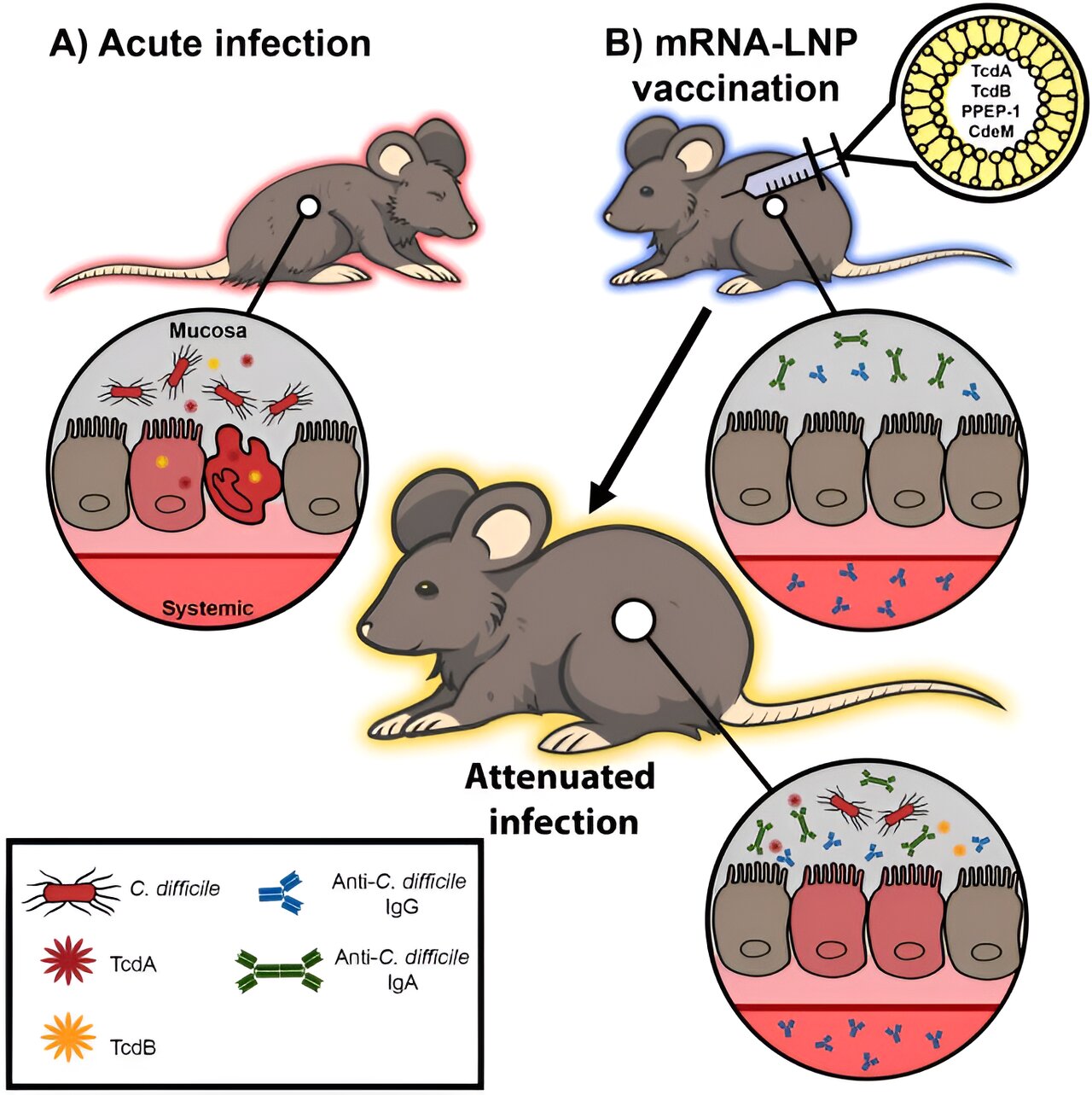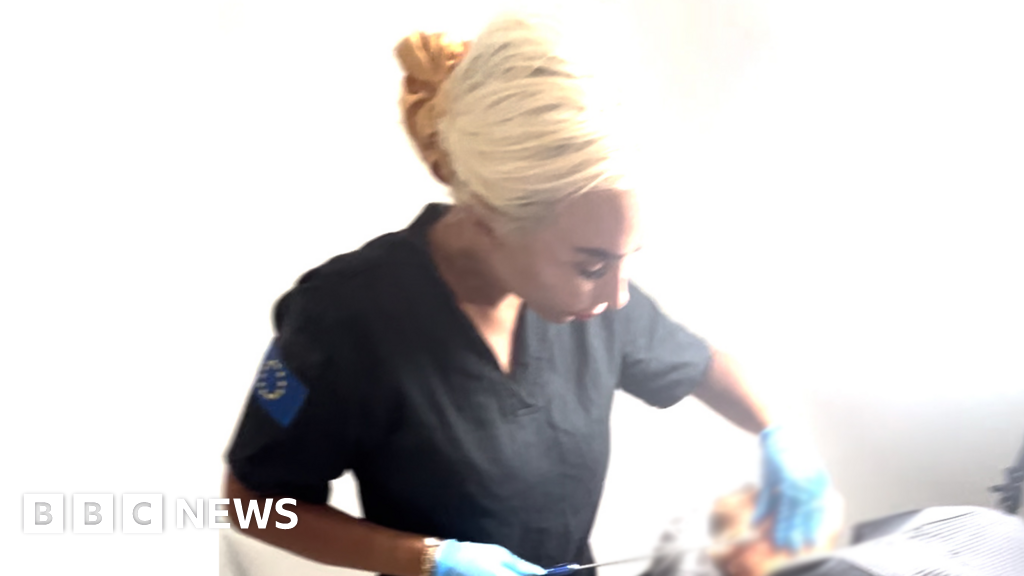
A large team of microbiologists, pathologists and infectious diseases specialists affiliated with several institutions in the U.S. has developed an mRNA vaccine that has thus far been found able to protect mice against intestinal Clostridioides difficile bacterial infections.
In their paper published in the journal Science, the group describes how they used mRNA technology to design a multipronged vaccine to target several proteins that are needed by the bacteria to cause gut ailments and how well it has done in testing with mouse models.
Prior research has found that patients in hospitals who are given antibiotics to treat various infections are left with vulnerable bowels after the good bacteria in their gut is destroyed. This leaves them open to bacterial infections such as C. difficile, which infects the gut and releases toxins that cause a variety of ailments including diarrhea, severe cramping and in some cases death due to sepsis.
Medical researchers have been looking for ways to combat these bacteria, but thus far, the microbes have been able to evolve faster than the drugs used to kill them. In this new effort, the researchers used lessons learned from research involved in developing vaccines for the virus that causes COVID-19 to develop one that could effectively fight C. difficile—at least in mouse models.
The messenger RNA (mRNA) in vaccines used to fight COVID-19 involves getting human T cells to create proteins that indirectly interrupt the virus’s ability to attach to the cells they are trying to infect. The research team used mRNA to get multiple components of the immune system (immunoglobulins, T cells and antibodies) to produce several types of proteins that could be used to fight C. difficile during different parts of its life cycle, ensuring that it could be effective in eliminating the bacteria from a host.
In testing their vaccine, the researchers found it to be very effective—all the mouse models given normally lethal doses of C. difficile recovered, while those in a control group all died. The researchers note that like other mRNA-based vaccines, theirs does not prevent an infection, it instead gives the immune system the means to fight it effectively.
More information:
Mohamad-Gabriel Alameh et al, A multivalent mRNA-LNP vaccine protects against Clostridioides difficile infection, Science (2024). DOI: 10.1126/science.adn4955
© 2024 Science X Network
Citation:
Scientists develop mRNA vaccine that protects mice against intestinal C. difficile bacteria (2024, October 6)
retrieved 6 October 2024
from https://medicalxpress.com/news/2024-10-scientists-mrna-vaccine-mice-intestinal.html
This document is subject to copyright. Apart from any fair dealing for the purpose of private study or research, no
part may be reproduced without the written permission. The content is provided for information purposes only.


